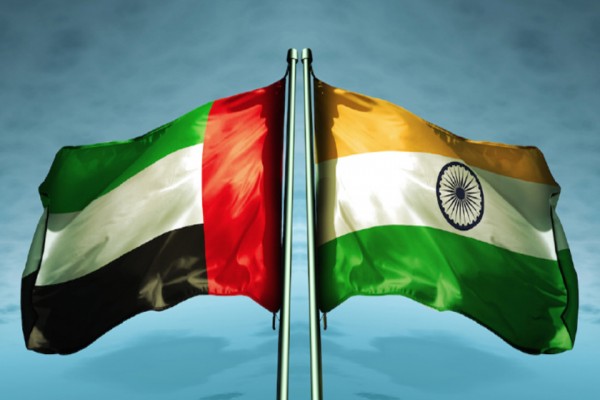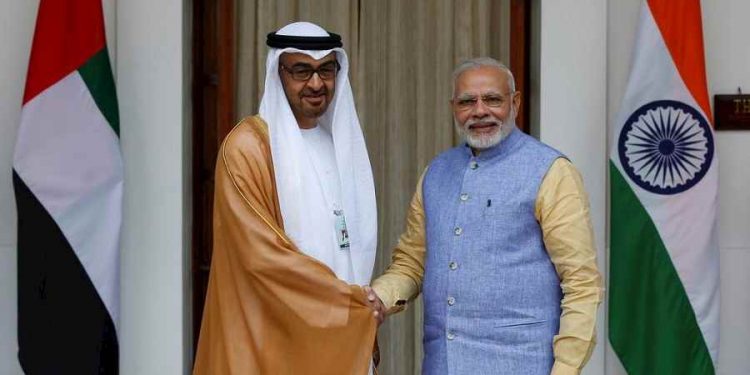The UAE Ambassador to India, Dr. Al Banna has publicly expressed his views regarding the current state of India-UAE relations. Believing that the Covid-19 pandemic has had a positive impact on the same, he emphasized the mutual ties that bind India and UAE.
What Strengthened the India-UAE relations?
According to the envoy, this is the result of increased cooperation through an exchange of specialists and professional experts such as doctors and groups of medical teams during the pandemic. In addition, UAE imported medicines and medical supplies in bulk from India, which further reinforced the bilateral bond. These were mostly for the frontline workers who were incessantly working throughout the Covid outbreak.
Similarly, through various government and private initiatives, medical resources went from UAE to India as well. Not only drugs but medical apparatus like medical ventilators, liquid oxygen cylinders were also exported to India. Dr. Al Banna added that this was done to boost the Indian health care system in a time of crisis during the coronavirus pandemic when support was desperately needed.
UAE expressed its solidarity with India symbolically as well, by lighting up its landmarks with the three colors of the Indian flag. All of this went on to highlight the improving quality of the India- UAE relations.
Even when it comes to bilateral trade, India and UAE have always been active partners and maintained a healthy relationship. Currently, it is valued at $60 billion, with India being UAE’s second-biggest commercial partner and the UAE being India’s third-biggest. For many Indian corporations, UAE is a prime location to invest in for expanding their business. This is because UAE is a doorway to the Middle East and North Africa (MENA) area, which is of strategic advantage to the country.

What About The India- UAE Flight Restrictions?
When the second wave of the pandemic hit India and cases peaked alarmingly, a travel ban was imposed from India to UAE on April 24, 2021. This restriction was prolonged till at least June 14. Most passengers were denied entry, but certain groups of people continued to be permitted to fly. This category comprises those having the golden visa, associates on diplomatic missions and UAE citizens. The UAE authorities may even grant permission to or exempt the entry of specific individuals and groups of people.
However, the majority of expats were stuck in India and currently waiting for the resumption of flights. As a representative who encourages positive India-UAE relations, Al Banna wishes that after June 14, UAE would lift the suspension of India-UAE travel.
However, he advices all to be cautious, as this decision will entirely rest on the Indian government’s ability to contain the virus and handle the pandemic’s deadly second wave. If the viral outbreak has been managed sufficiently well by June 14, there is hope for passengers to travel to UAE.
Before the spread of the contagion, every week there were 1,068 flights between India and UAE. More than half of Indians who traveled overseas made use of the UAE airports before the coronavirus outbreak. Dr. Al Banna also said that “Although India has temporarily suspended its civil aviation operations, the cargo movement between the UAE and India never stopped. The relationship got stronger, [and] if we look at the last wave of the Covid-19 pandemic, it encouraged a lot of business houses and business people to look at the available opportunities in the UAE.”
All in all, the future seems to be bright for India-UAE relations. Ambassador Al Banna seems to believe that there are many areas in which the interests of India and UAE are interconnected. For example, primarily, oil and gas, along with renewable fuel, food security, science and technology, innovation, etc. These are areas having immense scope which the two nations will hopefully explore to further advance the India-UAE relations.




![The Top & Most Popular Seafood Bucket Restaurants in Dubai for you [Never Miss]](https://uae24x7.com/wp-content/uploads/2020/09/8-seafood-in-a-bucket-scaled-e1600739237403.jpg)
![Procedures for Renewing the Driving License in Abu Dhabi [3 Simple Steps]](https://uae24x7.com/wp-content/uploads/2020/07/Capture-9-e1595666454466.jpg)





